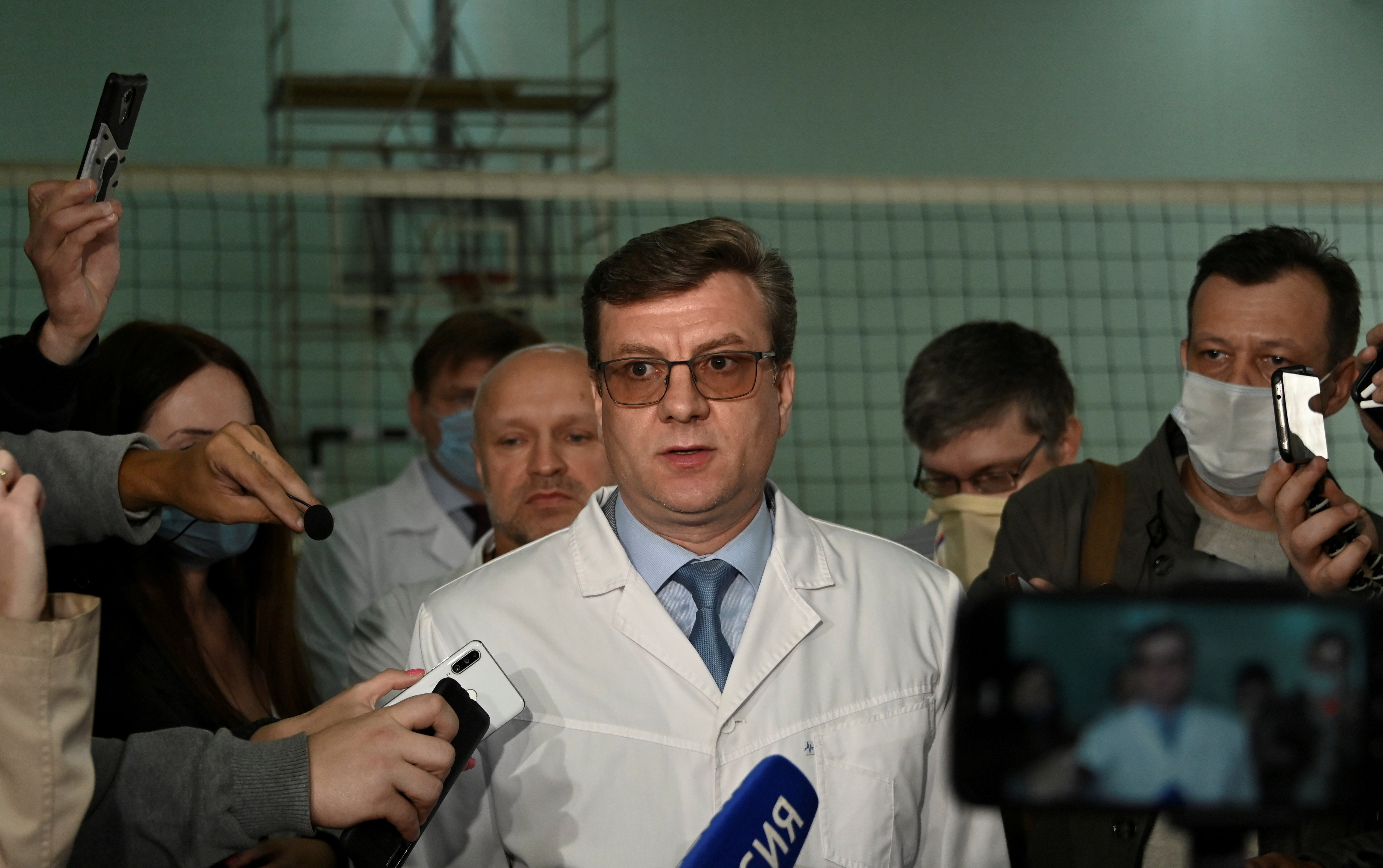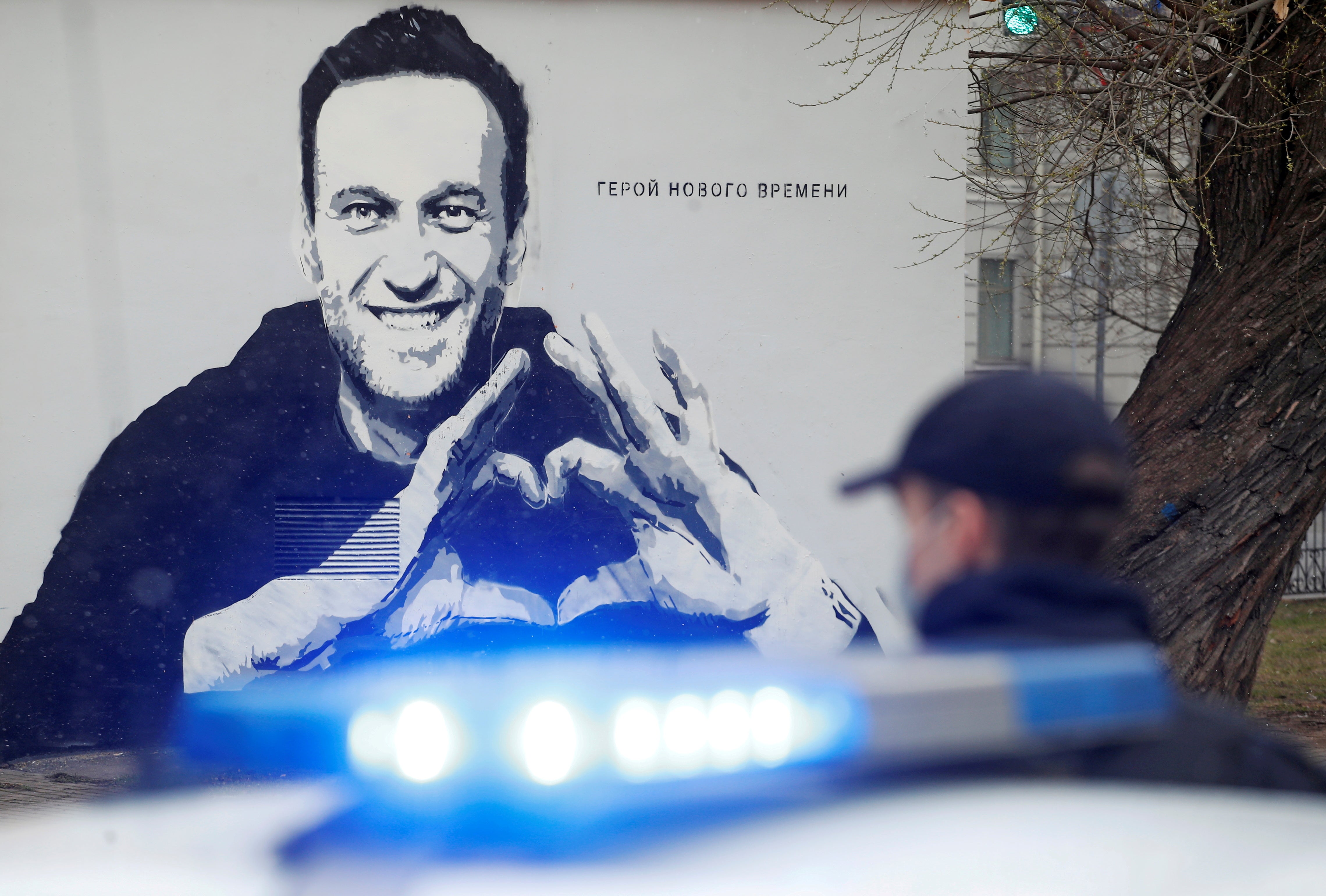Former chief doctor at hospital that treated Navalny found alive after disappearance
Alexander Murakhovsky had gone missing during a hunting trip

Your support helps us to tell the story
From reproductive rights to climate change to Big Tech, The Independent is on the ground when the story is developing. Whether it's investigating the financials of Elon Musk's pro-Trump PAC or producing our latest documentary, 'The A Word', which shines a light on the American women fighting for reproductive rights, we know how important it is to parse out the facts from the messaging.
At such a critical moment in US history, we need reporters on the ground. Your donation allows us to keep sending journalists to speak to both sides of the story.
The Independent is trusted by Americans across the entire political spectrum. And unlike many other quality news outlets, we choose not to lock Americans out of our reporting and analysis with paywalls. We believe quality journalism should be available to everyone, paid for by those who can afford it.
Your support makes all the difference.For many of Alexei Navalny’s supporters, the disappearance of Alexander Murakhovsky, the chief doctor responsible for the jailed opposition leader’s dubious post-nerve agent poisoning hospital care, fitted an obvious pattern.
At least two of Mr Murakhovsky’s colleagues had, after all, died in the months following Mr Navalny’s treatment in August. And the news that the former head doctor, since promoted to regional health minister, had gone missing on a hunting trip could only be interpreted in the most sinister fashion.
“The blood runs cold in my veins,” wrote Navalny aide Maria Pevchikh in a tweet on Sunday.
But on Monday morning, less than a day after local authorities began a full rescue operation involving police, national guard, mountain rescue, helicopters and drones, it was announced that Mr Murakhovsky had in fact been found alive.
A spokesperson for the Omsk regional government said Mr Murakhovsky had stumbled upon a local village and had been taken to hospital to undergo checks.
Earlier, colleagues had expressed puzzlement as to how the regional minister might have disappeared in what was considered a reasonably accessible part of the taiga, north of the regional capital, Omsk.
It was reported that he had lost contact with fellow hunters only four miles away from their hunting lodge — and had called them to say his off-road vehicle had stalled.
The group apparently began a search themselves on 8 May, before bringing in local authorities a day later.
As the story went viral, local media presented a range of possible explanations about what had happened in the forest: the minister, not known for hunting experience, had fallen into difficulties after drinking too much; he had broken something and then come across a bear; less likely, but not to be totally discounted, was foul play.
“It’s not unusual for dignitaries to die while on hunting expeditions here in Omsk — not all accidentally,” Dmitry Petrenko, a politician and colleague, told a local journalist.
On one level, Mr Murakhovsky certainly knows what actually went on in the Omsk hospital between 20 and 22 August, when Mr Navalny’s life was likely saved from novichok poisoning but doctors publicly refused to acknowledge the cause.
The then chief doctor would have been the main conduit between doctors treating the Russian opposition leader and the strange officials who arrived at the hospital shortly after.
Mr Murakhovsky was first among those to put forward a theory that Mr Navalny’s coma had been caused not by a nerve agent, but by metabolic problems caused by "low sugar levels”.

There were several elements to Mr Murakhovsky’s disappearance that made a hit job seem unlikely, however.
First, the former chief doctor had recently been promoted to the job of regional health minister. Given a history of toeing the line, he did not appear to be about to break cover with secrets about what went on in the Omsk hospital.
Second, the details of the Navalny poisoning operation were already in the public domain, following the extraordinary on-air confession of would-be assassin Konstantin Kudryavtsev.
Third, the idea of an Omsk hospital conspiracy was also well developed in local, international and social media; any unusual incidents would immediately attract suspicion.
Mr Navalny was evacuated to Germany on 22 August despite Mr Murakhovsky’s public opposition. There, it was determined that the Kremlin critic had been poisoned by a military-grade novichok. In January, the opposition leader returned to Russia, only to be jailed on arrival.
Join our commenting forum
Join thought-provoking conversations, follow other Independent readers and see their replies
Comments